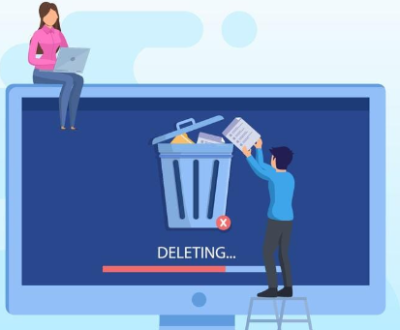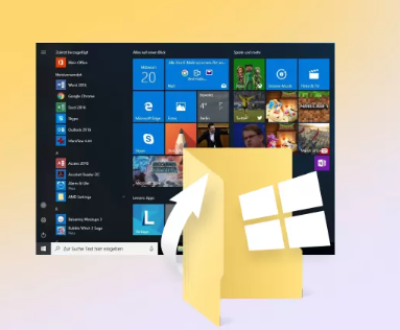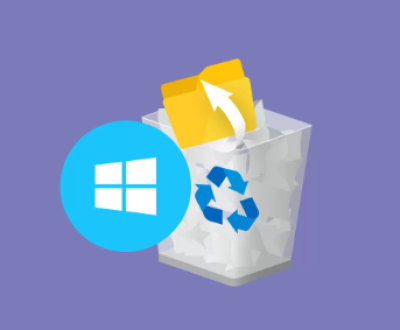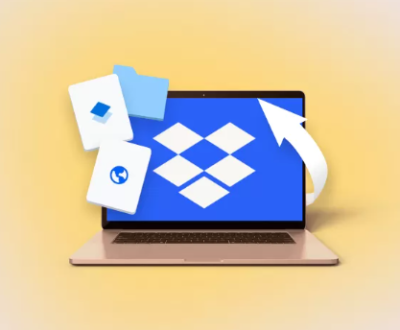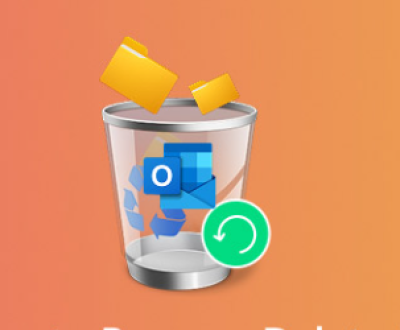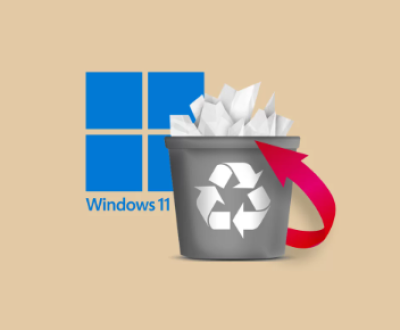ZIP files allow users to reduce the size of files and folders, making them easier to store, share, and transfer. However, despite their convenience, ZIP files are not immune to corruption or accidental deletion. When that happens, the contents often critical documents, photos, or project files can suddenly become inaccessible. Fortunately, free ZIP file recovery software is available to help recover damaged, corrupted, or accidentally deleted ZIP files.
However, ZIP files can become corrupted due to a variety of reasons:
Interrupted Downloads: Incomplete downloads may corrupt the archive.
Bad Sectors on Hard Drives: If a ZIP file is stored on a failing or damaged disk sector, it may not open correctly.

Power Failures: Sudden shutdowns during archive creation or extraction can lead to corruption.
File System Errors: Logical issues in the file system can affect ZIP file integrity.
Virus or Malware Attacks: Some malicious programs target compressed archives.
Improper Compression Tools: Using outdated or incompatible software to compress files may result in damaged archives.
ZIP corruption can manifest in various ways, including CRC errors, inability to extract content, file format errors, or messages like “Windows cannot open the folder.”
Can ZIP Files Be Recovered?
The short answer is: yes, in many cases, ZIP files can be recovered. Recovery depends on how the damage occurred, the extent of the corruption, and whether parts of the file are still intact. If the ZIP file was only partially overwritten or corrupted, specialized recovery software can often reconstruct the archive and restore access to the original contents.
The effectiveness of recovery tools also depends on whether you’re attempting to fix a broken archive or recover a deleted one. Some software is designed to rebuild damaged archives, while others focus on scanning storage media for deleted ZIP files.
Top Free ZIP File Recovery Software Options
There are numerous ZIP recovery tools available, but only a handful offer both effectiveness and cost-free access. Here are some of the most reliable free tools for recovering ZIP files:
1. Panda Assistant
Panda Assistant is a powerful and user-friendly file recovery tool designed to help users retrieve lost, deleted, or formatted data from a wide range of storage devices. Whether you’ve accidentally deleted a document, emptied your recycle bin, or experienced a system crash, Panda Assistant offers a reliable solution for restoring files with minimal hassle.
At the core of Panda Assistant is its smart scanning technology, which thoroughly searches hard drives, USB flash drives, memory cards, SSDs, and other devices for recoverable data. It supports a wide variety of file types including documents, photos, videos, emails, and even compressed archives like ZIP or RAR files. The software offers both quick scan and deep scan modes, allowing users to either perform a fast check for recently deleted files or conduct a more comprehensive search for data lost due to formatting, partition errors, or corruption.
What sets Panda Assistant apart is its clean, intuitive interface that makes the recovery process straightforward even for beginners. Users can preview files before recovery to ensure they’re selecting the correct items, and recovery can be completed in just a few clicks. The software is also designed to be lightweight and compatible with most versions of Windows.
2. Recuva
Platform: Windows
Primary Use: Recovering deleted ZIP files
Features:
Deep scan for hard-to-find files
Easy-to-use wizard
Portable version available
Pros: Lightweight, effective for recently deleted files
Cons: Less effective on heavily corrupted or old files
How to Use:
Download and install Recuva.
Launch the tool and choose “All Files” or “Compressed.”
Select the location where the ZIP file was stored.
Scan and preview recoverable files.
Restore the ZIP file to a safe location.
3. 7-Zip File Manager
Platform: Windows
Primary Use: Extracting partially corrupted ZIP files
Features:
Open and extract ZIP, RAR, TAR, and more
Attempts to ignore or bypass minor corruption
Pros: Free, open-source, lightweight
Cons: Can’t repair or restore deleted files
How to Use:
Right-click the corrupted ZIP archive.
Select “Open Archive” with 7-Zip.
Browse the archive contents. If you can see the files, extract them.
If errors occur, 7-Zip may still extract usable portions of the files.
4. ZIP Repair Tool (DiskInternals ZIP Repair)
Platform: Windows
Primary Use: Repairing corrupted ZIP files
Features:
Extracts healthy files from corrupted ZIPs
Works on archives that don’t open in default tools
Pros: Simple UI, effective for common corruption issues
Cons: May not recover all data in severely damaged files
How to Use:
Download DiskInternals ZIP Repair.
Open the tool and select the corrupted ZIP archive.
Choose a destination to save the repaired archive.
Start the repair and extract contents from the new file.
5. Panda Free Data Recovery
Platform: Windows
Primary Use: Recovering deleted ZIP files from hard drives, USBs, SD cards
Features:
Deep scan technology
Recover ZIP, RAR, DOCX, JPG, and many other formats
Pros: Simple to use, good results for deleted file recovery
Cons: Doesn’t fix corrupted ZIPs
How to Use:
Install Panda Free Data Recovery.
Select the drive to scan.
Filter the scan results for ZIP files.
Preview and recover to a safe location.
Step-by-Step ZIP Recovery Based on Your Situation
The best approach to ZIP file recovery depends on whether your issue is deletion or corruption.
Situation 1: Recovering a Deleted ZIP File
Stop Using the Storage Device – Any continued use can overwrite deleted data.
Install Recovery Software – Choose tools like Recuva or Disk Drill.
Scan the Drive – Deep scan ensures better results.
Filter Results – Search for “.zip” or use the filter options.
Recover Safely – Always recover to a different drive to avoid overwriting.
Situation 2: Repairing a Corrupted ZIP File
Avoid Further Damage – Don’t attempt to re-save or overwrite the archive.
Use Repair Tools – Tools like DiskInternals ZIP Repair or 7-Zip can help.
Backup First – Make a copy of the corrupted file before attempting repairs.
Extract Partially – Even if the repair fails, some tools may recover portions of the contents.
Try Multiple Tools – Not all tools handle corruption the same way; success rates vary.
Preventing ZIP File Loss in the Future
Once you’ve successfully recovered your ZIP files, take proactive steps to prevent data loss:
Use Reliable Compression Tools: Stick to reputable software like WinRAR, WinZip, or 7-Zip.
Avoid Interrupting Transfers: Don’t cancel copy/paste or upload/download operations.
Backup Regularly: Use both local and cloud backups for redundancy.
Install Antivirus Software: Protect against malware that targets archives.
Avoid Writing to Failing Drives: If you suspect a hard drive is failing, stop using it immediately.
Enable File History or Shadow Copy: On Windows, this provides earlier versions of files.
Use UPS: Prevent power surges and outages during file operations.
ZIP file corruption or accidental deletion can feel like a nightmare, especially when critical files are at stake. However, with the right approach and tools, there’s a strong chance of recovery—often without spending a cent. Whether you use software like Disk Drill, Recuva, 7-Zip, or specialized ZIP repair tools, recovery is possible and often surprisingly effective. The key is to act quickly, avoid overwriting the data, and follow the appropriate steps for your situation.
About us and this blog
Panda Assistant is built on the latest data recovery algorithms, ensuring that no file is too damaged, too lost, or too corrupted to be recovered.
Request a free quote
We believe that data recovery shouldn’t be a daunting task. That’s why we’ve designed Panda Assistant to be as easy to use as it is powerful. With a few clicks, you can initiate a scan, preview recoverable files, and restore your data all within a matter of minutes.

 Try lt Free
Try lt Free Recovery success rate of up to
Recovery success rate of up to

